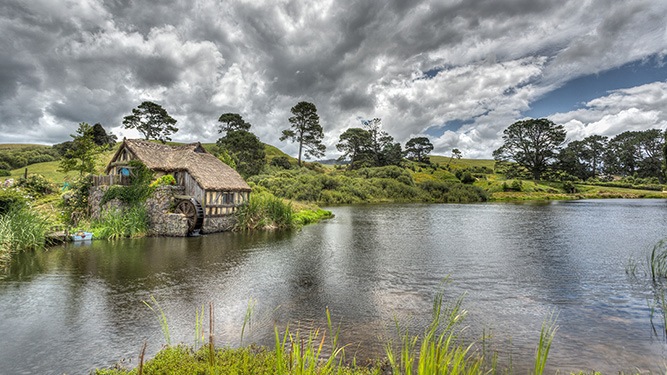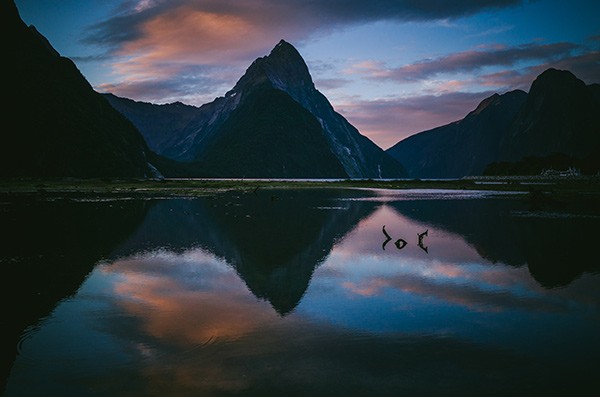Who wants to move to New Zealand from the UK? We do!
For many, New Zealand is heaven on earth.
Lush rainforests bursting with wildlife, snow capped craggy mountains and live volcanoes, majestic rivers and babbling stream, glittering sandy beaches, vast deserts, crystalline glaciers, hot springs and geysers, impressive fjords, and pretty much any other kind of incredible natural landscape you can imagine can all be found here.
Not only that but the weather is warm and temperate for the most part, with the north of this country huge island experiencing sun and high temperatures nearly all year round, while the south is cooler with sometimes snowy winters.
New Zealand’s national emblem is the flightless Kiwi bird, which the locals have taken so much to their hearts that they are widely referred to by the same name.
New Zealanders themselves are laid back and friendly — which is unsurprising considering their envious relaxed lifestyle and work-life balance which gives them plenty of time to benefit from the natural surroundings and spend lots of quality time with family and friends.
The country may be large, but the population is relatively small, meaning it rarely gets crowded and there is very little congestion on the roads.
It’s also a very safe place to live, with a relatively low crime rate and little corruption.
The standard of education is high, and is also affordable, and children (and adults) benefit hugely from the NZ lifestyle which allows them to get closer to nature and experience all the adventures and sports activities the great outdoors has to offer.
Thanks to New Zealand’s multicultural population the cuisine here is some of the best in the world, and has distinct European, Asian and Polynesian influences.
A national favourite is a smoky Maori ‘hangi’ — sweet potato, pumpkin, chicken, pork, lamb, and seafood cooked in an underground pit filled with hot stones — but each varied dish is created using delicious fresh local ingredients harvested from the surrounding ocean, rivers, and farms.
Restaurants range from chic establishments serving up haute cuisine to trendy brasseries and cafés.
The wine is excellent too, and New Zealand vineyards often employ top class chefs to treat your taste buds to mouth watering dishes to accompany your world class wines.
Convinced yet? Here’s our guide on where to live in New Zealand for British expats…
Best Places to Live in New Zealand
Auckland
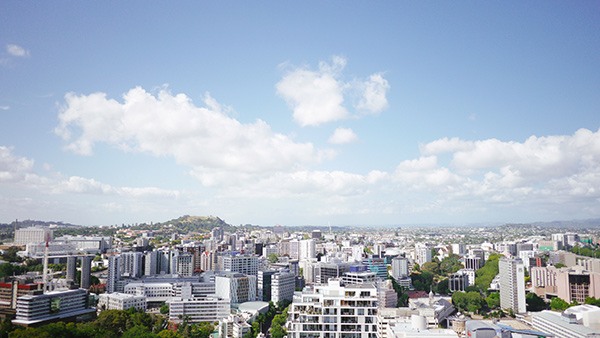
New Zealand’s largest city, and the only place in the country that gets crowded at peak times, Auckland is a thriving, cosmopolitan seaside city with a multicultural mix of expats from all over the world, as well as the native and Polynesian populations.
This is a city with plenty of charm and plenty to do, with an extensive calendar of cultural events throughout the year.
There are galleries and museums, world class restaurants, parks and harbours, great shopping, plus beaches, parks, and hills to explore.
Located on New Zealand’s sunny North Island, the summers are warm and sunny with average temperatures of around 20°C, and winter temperatures rarely drop below 11°C, although it can be very rainy at times.
Widely considered New Zealand’s economic capital, job opportunities are excellent in Auckland, career progression can be fast, and salaries are higher than elsewhere in the country (key employment sectors include construction, healthcare, tech and IT).
The flip side of this however, is that living costs are slightly higher too.
That said, Auckland is a much cheaper place to live than most other major cities world wide, and it is easily possible to live comfortably and still enjoy that great work-life balance.
This is also a very family friendly city where children can benefit from a safe environment, great healthcare, and excellent education options.
Two in five of Auckland’s residents come from abroad, and British expats find it easy to integrate here.
Wellington
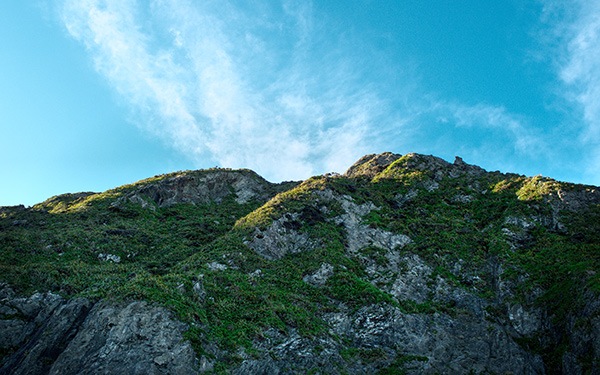
Wellington is known to be one of the world’s most relaxed cities, and it’s a popular destination for expats.
It’s a compact city for a capital, but rich with cultural activities, museums, galleries and theatres, and it’s renowned for its thriving film industry.
It’s an attractive city too, with some fine Victorian architecture, botanic gardens, and a stunning natural harbour with pretty beaches and bays which are ideal for water sports, walks and fishing.
Nightlife in the capital is buzzing, with a mix of nightclubs, bars, cocktail bars and pubs, and the city is proud of its craft beers, regional wines, and sophisticated food scene.
Wellington always has lots on to do and see its just about how social you want to be.
There are lots of outdoor activities groups and foodie groups as well, and expats find it easy to fit in here.
Situated to the south west of the North Island, the windy city really can be very windy, but summer temperatures remain comfortable (averaging around 21°C) with plenty of sunshine.
During winter temperatures descend as low as 4°C, and the wind chill can make it feel colder — however winters are short only lasting a couple of months.
The standard of education in Wellington is high, with the city boasting two high ranking universities.
Salaries are high, and living costs are more affordable than nearby Auckland.
Property and business services, digital technology, and government administration provide the greatest number of jobs, and working here for expats can be very rewarding.
This creative and energetic little capital offers a general high quality of life.
Christchurch

Recovering from a major earthquake in 2011 which destroyed much of the city centre, Christchurch is a city undergoing an impressive rebirth, and community spirits are higher than ever before.
Located on the east coast of the South Island, life in Christchurch is heavily influenced by Maori culture, and also feels very English as there are a huge number of British expats living here.
Extensive building works are going on all over the city, but things are developing at a rapid pace.
This is a student city, and there’s a young, fun atmosphere with plenty to see and do, from glorious, expansive parks and gardens, to unique cafes and restaurants, impressive street art, a wealth of cultural and entertainment diversity including a huge number of festivals, markets, museums, and more — not to mention the ocean and hills on your doorstep.
The climate in Christchurch is temperate and fairly dry, with average summer temperatures of around 23°C.
Winter temperatures can drop to zero at night, with frost and occasional snow.
The rules for expats are a little different in Christchurch, as you must be resident and working in the city for two years before you can benefit from free healthcare.
Schooling children will also incur some fees if you aren’t a permanent resident, but the standard of education is very high.
The employment market is now really picking up again after the quake, and expats should find it fairly easy to get a job here, with construction and engineering, healthcare, property, tourism, IT and communications sectors offering the best opportunities.
Hawkes Bay
Hawke’s Bay is a large area surrounding a bay on the south-eastern side of the North Island which is divided into three different districts — Hastings, Havelock North, and Napier.
All three districts benefit from charming Art Deco and Spanish Mission style architecture and a dry, temperate climate with warm, dry summers of about 24°C, and mild, windy winters.
This is an area well known for its wines, and for the wide variety of local fresh produce available with farmers markets every weekend, with Hastings being home to a multitude of orchards, wineries and beautifully landscaped parks and gardens.
Havelock North village is ideal for hikers and bikers thanks to its location at the base of Te Mata Peak, which offers exceptional panoramic views from its summit.
Napier benefits from a seaside location, with beautiful sea views, eclectic boutiques, bars and restaurants.
Rural production and processing, forestry and manufacturing are important industries in the Hawkes Bay area, as are tourism and hospitality, and health and community services.
Strong employment and population growth means that the economy is in good shape, and expats should find plenty of employment options in the Hawkes Bay area.
Living costs and property are fairly affordable too.
Queenstown
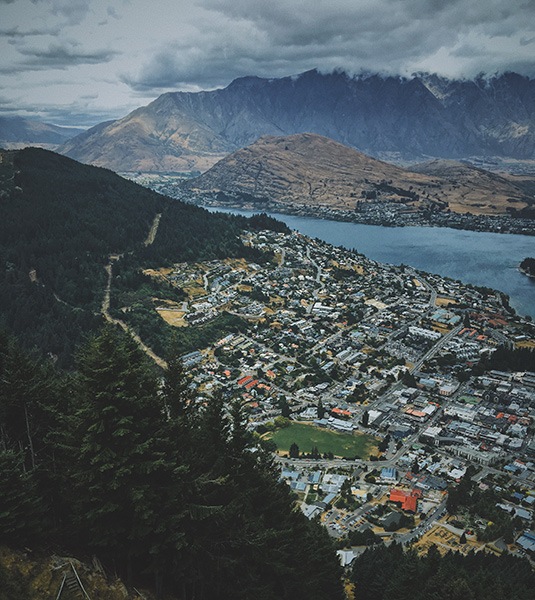
A destination for thrill seekers, Queenstown is a city where you can experience just about any extreme sport to get that rush of adrenaline.
It’s home to New Zealand’s highest bungee jump, as well as skydiving, jet boating, white water rafting, canyon swing, sailing, ziplining, climbing, canyoning, skiing, hiking and paragliding and more.
But this stunning city set on the shores of breathtaking Lake Wakatipu with its magnificent mountain backdrop is more than just the self proclaimed adventure capital of the world — there is also a lively bar scene, a cosmopolitan arts and dining scene, and exceptional vineyards.
Queenstown experiences four distinct and unique seasons with long, hot summers (temperature range between 20°C and 30°C) and snowy, cold winters when temperatures drop to between -2°C and 8°C.
This is a city bursting with energy of all kinds, and it draws large numbers of expats – particularly those aged under 35.
However the cost of living compared to the average salary can make it an expensive place to settle, and certain foods can be expensive depending on the season.
That said, unemployment in Queenstown is very low, but as most jobs revolve around the tourism industry they are less highly paid.
Waiheke Island
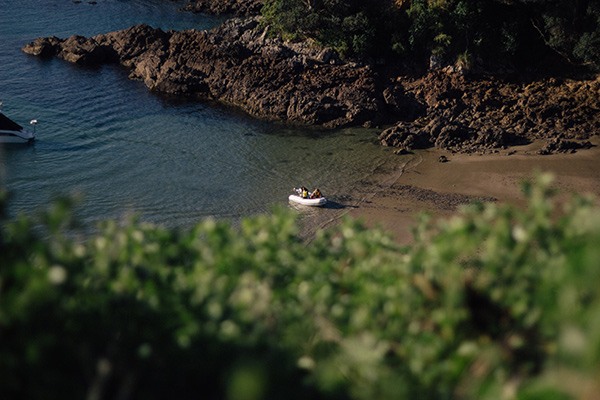
Just across the water from Auckland in the Hauraki Gulf lies Waiheke Island, a 20km land mass covered in rolling hills and vineyards, and blessed with spectacular views, and beautiful coves and beaches to explore on leisurely hikes.
This is a bohemian paradise which attracts nature lovers, hippies, artists, and the rich and famous who have now made this island their own.
Waiheke benefits from hot, dry summers with daily average temperatures of 29°C which means that some excellent wine is produced here, and the island is dotted with wineries.
Winters are blissfully warm too, with temperatures reaching around 19°C during the day time.
As a destination with artistic roots, there are also many galleries and craft boutiques to discover, as well as some incredible gourmet restaurants.
There’s not much in the way of employment on the island, and most expats who live here are either retired or make a daily 35 minute commute by ferry into Auckland to work.
This can be inconvenient for some, and others may find themselves feeling a little isolated on the Waiheke.
However there’s a great sense of community here, two schools, and a fabulous weekly produce and craft market.
Dunedin
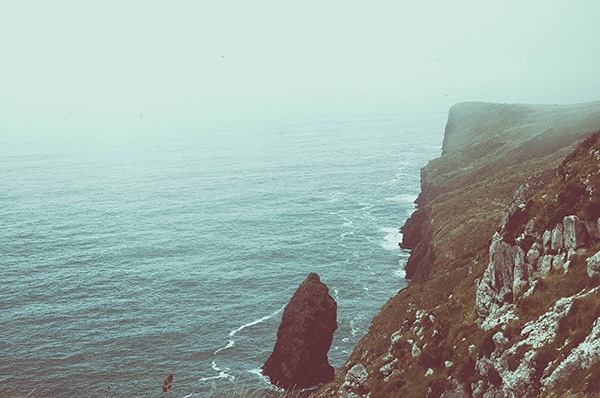
The second largest city on New Zealand’s South Island, Dunedin has a Scottish heritage which the citizens are fiercely proud of, and Scottish influences can clearly be seen in the style of architecture and the ever present kilts and tartan which can be found in the local shops.
Set between misty hills and blue harbour, there are some stunning nearby beaches to explore, as well as woodland gardens, unique and rare wildlife including albatross, penguins and seals, plus a surf beach.
The city is compact and hilly in places, and is home to the oldest university in NZ whose students invest a good dose of lively energy into the city during term time, and this has given rise to a vibrant bar, club and pub scene.
There’s also a vibrant independent music scene, and live music is regularly played in bars and pubs.
Dunedin is not New Zealand’s warmest city, with average high summer temperatures of around 19°C, but winters stay above freezing with average lows of around 4°C.
It is also known as a rainy city, probably due to most of its rainfall coming in the form of drizzle rather than bursts of heavy rain.
The city’s economy is diverse, and expats looking for employment in property services, education, business services, health services, manufacturing. communication, general trades, engineering, and tourism should be able to find work easily.
Mount Maunganui
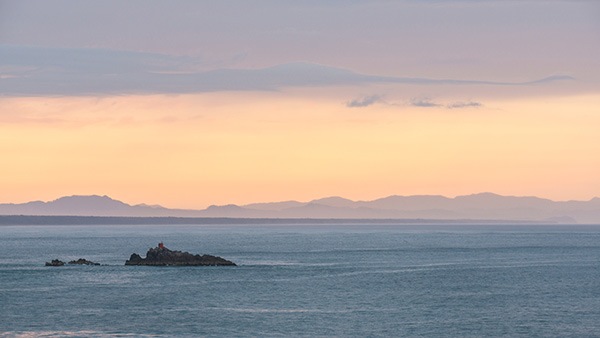
Located on the Eastern side of the North Island in the picturesque Bay of Plenty on a peninsular jutting out into the ocean lies the holiday paradise of Mount Maunganui, watched over by the imposing Mauao mountain — steeped in Maori history and mythology.
Mount Maunganui’s main white sand beach has won the accolade of best beach in New Zealand, and it’s an idyllic spot to laze in the sun or take part in some water sports.
This resort town features excellent boutique shopping, al fresco dining, galleries, bars, and healing hot salt water pools at the base of the mountain itself.
Around 20,000 people from a mix of cultural backgrounds live in Mount Maunganui, who come here for the natural beauty and the 2260 hours of glorious sunshine per year and a pleasant year round climate.
Being a resort town, most employment opportunities are centred in the tourism and services industries. The port in nearby Tauranga is also a source of shipping jobs, and agricultural and horticultural jobs, engineering, construction, energy, freight logistics, and ICT are growing sectors.
There are a large number of schools in the nearby areas of this family friendly resort, as well as a university.
So that’s New Zealand’s best cities. Still interested in moving to New Zealand from the UK?

